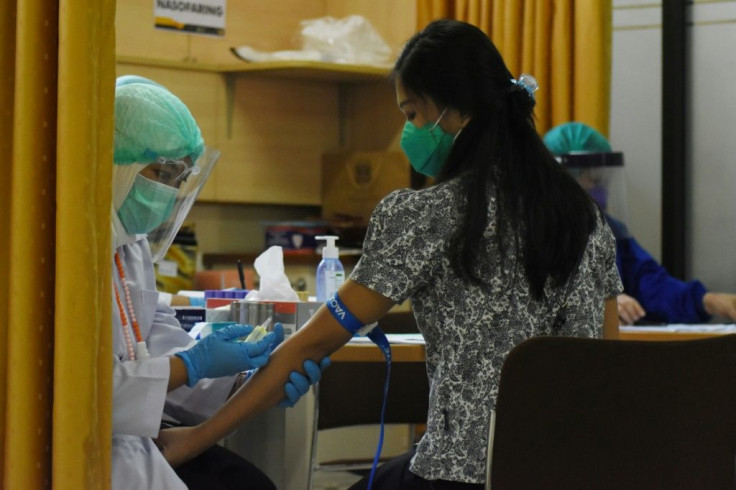Violate Coronavirus Mandates In Indonesia And You Get To Dig Graves
KEY POINTS
- Eight residents from Indonesia's Gresik Regency were ordered to dig graves for violating mask mandates
- One local official said the punishment was meant to serve as a deterrent for the group and others who may violate social mandates
- Indonesia has struggled to curb the spread of coronavirus since the first reported case hit in March
Indonesian authorities are making residents dig graves for the victims of the coronavirus pandemic as punishment for not wearing masks in public, according to a new report.
Eight people faced the punishment Tuesday in the Gresik Regency on the eastern end of Java.
As of Wednesday, Indonesia has over 232,000 confirmed cases and over 9,200 reported deaths from coronavirus. It is one of the hardest hit countries in all of southeast Asia.
Indonesian media outlet Tribun News spoke with a local district head, identified as Suyono, who said the punishment is a means of enforcing stricter social distancing and mask guidelines in the region. A lack of grave diggers prompted the punishment, he said, noting that it also could deter others from violating coronavirus mandates.
“There are only three available gravediggers at the moment, so I thought I might as well put these people to work with them,” Suyono said.
Suyono said at least two people were assigned to each grave, one to dig and one to insert wood boards to support the body. The diggers will not be permitted to take part in any funeral ceremonies and do not bury the bodies. That's done by local officials wearing protective equipment.
“This is to provide a deterrent effect to the offenders,” Suyono said.
Indonesia has struggled to curb the spread of coronavirus since the first reported case in March. However, the government was slow to implement nationwide mandates and refused to order a full lockdown as other nations did. Any lockdowns imposed were ordered by local officials while social restrictions were outlined for the rest of the country.
The government’s apparent lax response resulted in heavy strain on the country’s medical system. The government was able to address early PPE shortages, but as many as 200 nurses and doctors died from coronavirus after being exposed while treating patients.
“We are worried that if positive cases in the community continue to increase, there will be many cases that cannot be handled properly,” Indonesian Medical Association spokesman Dr. Halik Malik told the Associated Press.
Malik’s concerns were echoed by Center for Indonesia’s Strategic Development Initiatives health expert Nurul Nadia, who warned the pandemic will impact the country’s health system for years.
“Our health system is weak, the number of doctors is not ideal, the number of specialist doctors is very few and many have become victims of COVID-19 now,” Nadia said.
The government said it’s doing what it can to try and ease the burden on healthcare workers as cases continue to rise. This included moving patients out of hospitals, changing work arrangements to lessen the chance of workers being exposed, and offering nutritional supplements.
“We are deeply sorry to our hero health workers, the front-liners, the fighters who have passed away while handling COVID-19 treatment,” National COVID-19 Task Force spokesman Wiku Adisasmito said during a Sept. 9 press conference. “Both the task force and the minister of health are very concerned (about) this issue.”

© Copyright IBTimes 2024. All rights reserved.




















